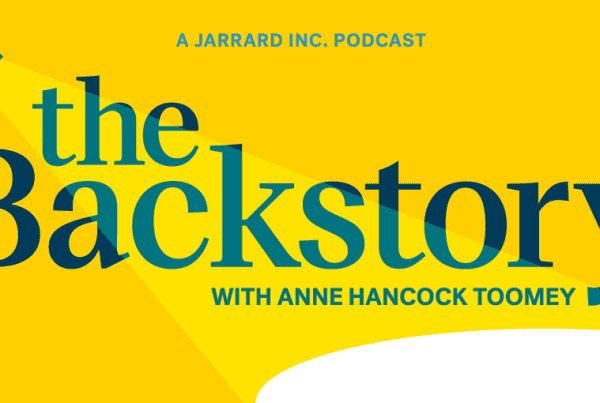The Big Story: Americans are losing the habit of giving. Here’s how to get it back
“The way Americans are giving is shifting, and that’s a problem for the long-term health of charitable organizations. While philanthropy among wealthy people has strengthened, with overall dollar donations at record highs, the percentage of Americans who give has fallen precipitously this century.”
Lessons in community engagement
By The Jarrard Inc. Pro Bono Committee
3-minute read
The holidays are over, but giving campaigns never stop for nonprofit organizations working to build financial momentum for what’s to come.
Charitable giving has seen its fair share of ups and downs in recent years, including a post-COVID dip in donations to community-based and not-for-profit organizations.
A summary by Accordant highlights the following insights from the Giving USA Foundation’s 2023 Annual Report on Philanthropy:
- Fewer people gave, and the total amount they gave dropped – the first time both have dipped.
- Charitable giving declined to less than 2 percent of GDP, at least in part due to inflation.
- In contrast to giving overall, donations to health-related causes were up by over five percent – down slightly when adjusted for inflation, but still.
- Younger generations are attracted to new forms of giving campaigns, with Millennials and GenZ donors rewarding “flexibility and innovation as nonprofits embraced virtual events, cryptocurrency and donor-advised funds.” Social media-based and other virtual campaigns gave people new ways to engage and give.
Of course, the needs of – and incredible work done by – so many nonprofit organizations doesn’t fluctuate with the ups and downs of giving. How do local health providers and advocates push forward? Here, we look at a few lessons learned from small, but mighty community organizations the Jarrard team is proud to partner with and support. They are teams bridging the gap between social issues, social determinants of health and the delivery of healthcare. The lessons from their work have been tested in the crucible of community care and can be used by providers of every stripe.
Build a Web
It’s not just giving campaigns that necessitate thoughtful, creative engagement. Since 2013, Survivor Fitness has helped hundreds of cancer survivors reclaim their health and thrive after cancer treatment. Cancer survivors have unique physical, nutritional and emotional needs, which in turn necessitate custom fitness and wellness to guide them toward long-term health. Survivor Fitness offers exactly that.
Their lifechanging work is only possible through strong relationships and engagement with community partners who support Survivor Fitness’ mission and refer survivors to the program.
While most participants are connected to the program via word-of-mouth and physicians – particularly oncologists and surgeons – they are part of a broader network of key individuals and groups including fellow local nonprofits, survivor support groups, hospitals and health systems, physical therapists and patient navigators that can all share insights and promote each other’s work. These groups are, in turn, supported by local corporations who can provide advocacy and financial underpinning.
Lead with Mission
Faith Family Medical Center, is a mission-driven, non-profit primary care clinic located in Nashville, TN. With a full medical clinic and staff, Faith Family’s focus is on providing timely, affordable, high-quality primary medical care, counseling and education services to the region’s working uninsured and underinsured neighbors.
Their mission – “to provide hope and healing to Nashville’s hardworking neighbors in need” – has remained at the heart of the organization for over 20 years, and it is felt in every interaction. That mission has driven their organization forward and has kept them grounded through all of the ups and downs that local providers face. For example, Faith Family opened a stunning new facility with more capacity for patient volume. The challenge? How to expand their reach to bring in those additional neighbors in need. Doing so meant a mission-driven engagement strategy to explain who Faith Family is and who they help. But telling that story isn’t just resulting in more patients getting the care they need. It is also demonstrating to prospective donors and partners why their support is so important. That has allowed them to stay true to their mission at a larger scale.
As health organizations continue to address rising financial pressure, increasing patient volumes and workforce shortages, these challenges can result in hard choices that can seem to run counter to their mission.
Faith Family, however, has preserved the traditions and culture that its team values most, despite periods of strain. The lessons here: Consistently remind internal and external stakeholders of what’s at the heart of the organization – the mission, the purpose, the unique culture. Don’t push those things to the back of the shelf during fast-moving, big change moments. Intentionally keep them front and center.
Activate grassroots
Voices for a Safer Tennessee (Safer TN) is a nonprofit, nonpartisan coalition dedicated to creating a healthier, safer Tennessee by reducing preventable firearm tragedies. The advocacy coalition formed and activated within days following The Covenant School shooting, which occurred in Nashville on March 27, 2023. Two small groups of people – predominantly mothers – came together organically as neighbors, friends and colleagues with the common question, “How can we help make sure this does not happen again and make Tennessee a safer place?”
From there, Safer TN activated partnerships and used its collective voice to engage in productive, bipartisan discussions with the purpose of finding widely agreeable, effective solutions. In just a few weeks, the group harnessed their advocacy power to engage thousands of Tennesseans from all walks of life and political affiliations in a modern-day grassroots campaign. Through hard, focused work, coalition members used conversation to find common ground, and persevered to meet this critical moment in the wake of devastation and fear. Today, Safer TN is nearly 25,000 members strong, with representation in all 95 counties. Their work continues in a focused effort to create legislative change in Tennessee and serve as a model for other states.
As we enter an election year, healthcare policy issues will be top of mind for many. Charitable organizations improving healthcare can stay in control of their narrative by harnessing their own local, grassroots political power. The efforts of relatively small organizations show the power of engaging even more intentionally with existing partners and advocates, finding and establishing relationships with new ones, and above all, starting each decision with a discussion about how the possibilities fit the mission.
The Jarrard Inc. Pro Bono Committee includes: Hannah Boggs, Monica Haun, Dan Schlacter and Hillary Sloan
Image Credit: Shannon Threadgill



